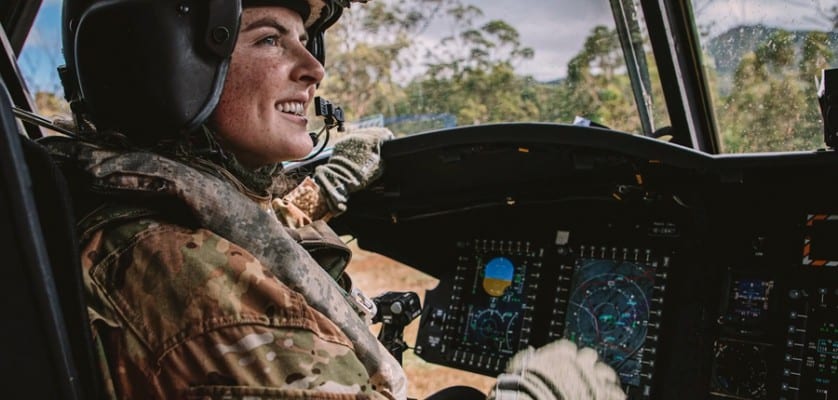Army Chief of Staff Gen. James C. McConville continued to emphasize the need for proper talent management to increase diversity at all levels to ensure that the right person is put into the best position to meet the needs of the force.
The recent nomination of Lt. Gen. Laura Richardson for appointment to the most senior general grade, combined with the Army’s push to retain a diverse group of talented personnel, in this case women, is a step in the right direction, McConville said during a Defense Writers Group virtual event March 11.

Richardson is currently the U.S. Army North commanding general at Joint Base San Antonio, Texas. If confirmed, Richardson will become the commander of U.S. Southern Command and will be the second female Soldier to reach the four-star rank.
Retired Gen. Ann E. Dunwoody was the first and only female service member to attain a fourth star in 2008.
The Army is changing, McConville said, as he recalled the day he selected Richardson to become his deputy G-3 with the 101st Airborne Division (Air Assault) over two Soldiers with Ranger experience.
Richardson’s potential promotion to the next rank, coupled with her experience in the combat arms as an aviation officer, is a positive move forward, McConville said, as he reflected on being the first aviator appointed to his current position.
“I’m extremely proud of the 185,000 women who serve with distinction every single day in the U.S. Army,” McConville said. “There have been millions who served in the past and every single conflict since the Revolutionary War.”
As a brigade commander with the 1st Cavalry Division in Iraq in 2004, McConville recalled the dedication of Chief Warrant Officer 2 Cindy Rozelle, who led a team of AH-64 Apaches to save an outpost from being overrun.
“I don’t remember anyone questioning her gender after she saved their lives,” he said. “There are tons of stories that can be told like that. And I’m just very proud of all the women that serve in the Army, including those in my family.”

McConville’s wife is a former officer and registered dietitian, while his daughter, an Army captain, currently serves as a clinical social worker. He also mentioned his two great-aunts, who drove trucks in the Pacific theater during World War II.
McConville said there is a need to put “people first” by implementing a 21st century talent management process to acquire, employ and retain personnel. Goals outlined under the Army People Strategy look to deliberately manage talent by recognizing each individual’s unique knowledge, skills, and behaviors.
Initiatives like the Army Talent Alignment Process, the commander assessment program for sergeants major, lieutenant colonels and colonels, and other systems are already in place to provide Soldiers more flexibility and predictability throughout their career.
Through proper talent management, the Army could see its first female Army chief of staff within the next 20 years, McConville said.
“We are in a war for talent, and we’re going after the best and brightest,” he said. “And we are going to do what it takes to keep them in the Army.”
https://twitter.com/USArmy/status/1374391863155642369













